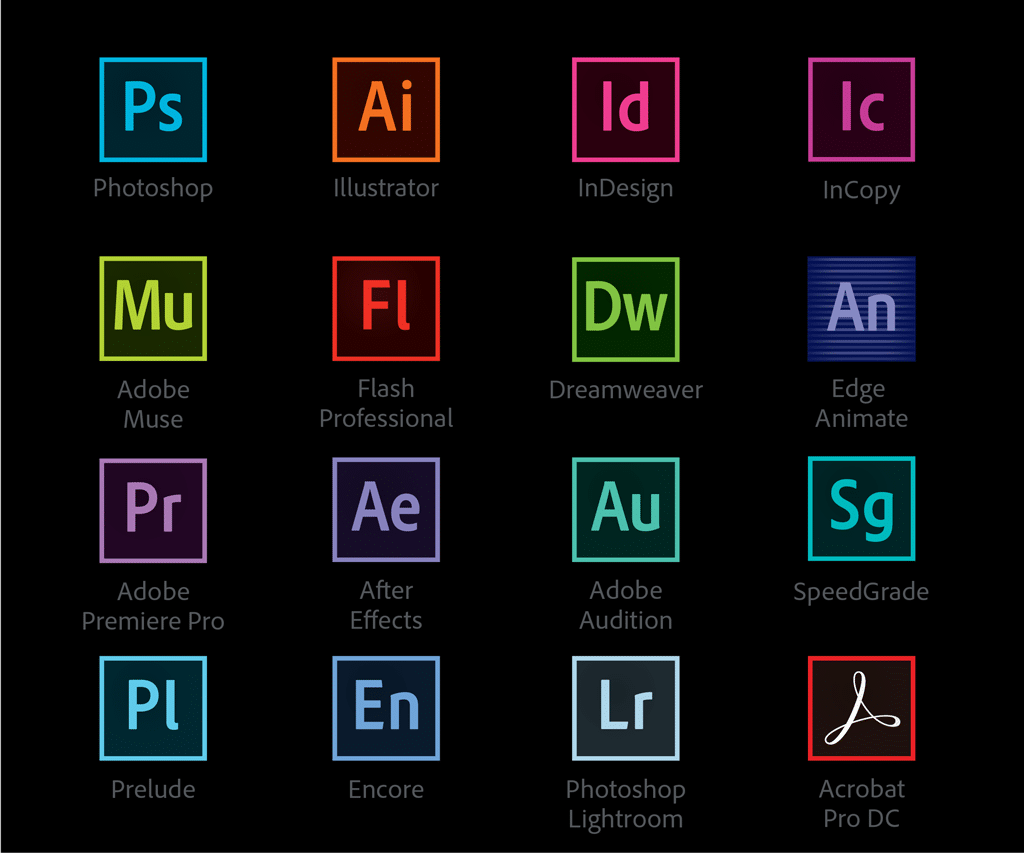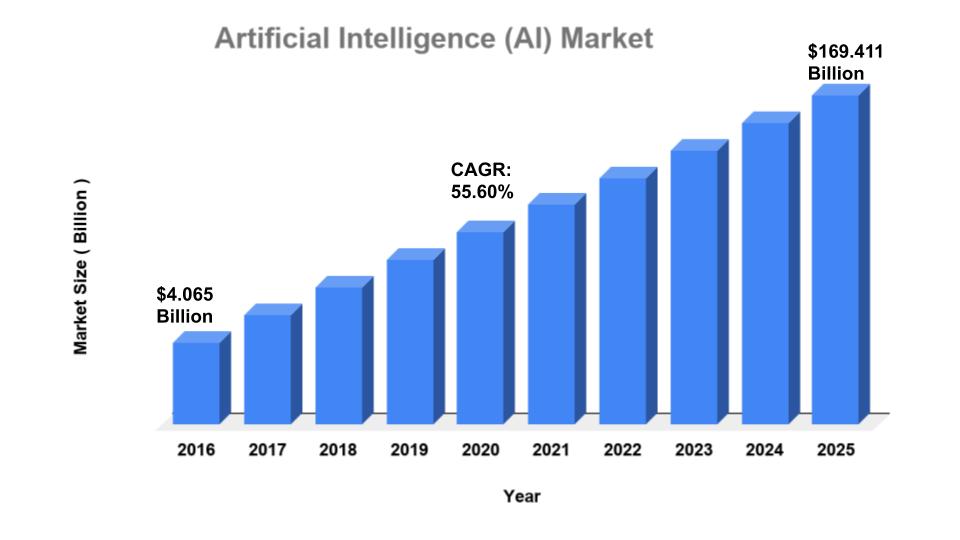Desk of Contents:
- Funding Methods for AI Shares
- Market Traits in AI Shares
- Benefits of Investing in AI Shares
- Dangers of Investing in AI Shares
- Elements to Contemplate Earlier than Investing in AI Shares
Artificial Intelligence (AI) swept from science fiction novels to the very core of industries around the globe. AI is rising quickly and remodeling fields like healthcare, finance, retail, and so forth. AI has turn into the middle of the technological innovation hotspot. Even, the traders are drawn to the prosperity of those avenues. So, if you wish to dive into this wave of tech revolution, AI shares are your solely likelihood. Let’s discover the place to start or learn how to undergo this dynamic AI world. Let’s discover out!
What are the AI Shares?
Image Courtesy: fool.com
AI shares check with shares issued by corporations that create, apply, or have a powerful curiosity in synthetic intelligence applied sciences. The businesses would possibly develop AI fashions, embody AI of their enterprise actions, or present companies to corporations prepared to use AI. The AI shares characterize software program giants to area of interest startups altering industries with automation, machine studying, and large knowledge analytics.
The three forms of AI shares embody:
Core AI Builders: Companies that keep themselves on AI know-how, be it neural networks or pure language processing.
AI Adopters: Organizations utilizing AI to enhance an present services or products.
AI Infrastructure Suppliers: Corporations that supply {hardware}, cloud environments, or knowledge wanted to construct AI methods.
Greatest AI Shares for 2024-2025:

The AI inventory market is brimming with potential, however selecting the right investments requires analysis and foresight. Right here’s an inventory of high AI shares to observe for 2024-2025:
| Firm Identify | Ticker Symbol | Market Cap (Approx.) | Sector | Key AI Focus |
| NVIDIA | NVDA | $1.14T | Semiconductors | GPUs for AI, autonomous vehicles, data centers |
| Microsoft | MSFT | $2.38T | Software/Cloud | Generative AI (OpenAI partnership), Azure AI |
| Alphabet (Google) | GOOGL | $1.71T | Internet/Cloud | AI search, Bard AI, Tensor processing units |
| Meta Platforms | META | $833B | Social Media | Metaverse AI, generative AI |
| Amazon | AMZN | $1.41T | E-commerce /Cloud |
AWS AI services, Anthropic investment |
| Palantir Technologies | PLTR | $37.5B | Data Analytics | AI for defense and enterprise applications |
| Adobe | ADBE | $260B | Creative Software | Generative AI tools (e.g., Adobe Firefly) |
| Tesla | TSLA | $830B | Automobiles/Robotics | Autonomous driving, Dojo AI chips |
| Intel | INTC | $162B | Semiconductors | AI accelerators, hardware for edge computing |
| UiPath | PATH | $8B | Automation Software | AI-powered automation and robotic processes |
1. NVIDIA (NVDA):

Industry: Semiconductors
AI Application: The leader of the market, NVIDIA develops the GPUs that train and run AI models and inform applications in autonomous vehicles, data centers, and generative AI.
2. Microsoft (MSFT):

Picture Courtesy: ThoughtCo
Industry: Software and Cloud
AI Position: It is a robust strategic investment over ChatGPT’s creators OpenAI, with AI incorporated into its Azure Cloud to make them a leader in this space. For their enterprise tools, they have now integrated generative into all productivity apps under the Office 365 branding.
3. Alphabet (Google) (GOOGL):

Picture Courtesy: wallpapersden.com
Industry: Internet and Cloud
AI Role: Alphabet has been building a number of different forms of AI into its search algorithm, including Bard AI assistant and TPUs that execute AI models efficiently.
4. Meta Platforms (META):

Picture Courtesy: brandemia.org
Industry: Social Media and Metaverse
AI Role: Meta has been investing aggressively in AI to fuel new innovations both in the metaverse and social platform experiences, especially using generative and predictive AI to deepening user engagement.
5. Amazon (AMZN):

Picture Courtesy: moneycontrol.com
Industry: E-commerce and Cloud
AI Role: As one of AWS’s robust AI offerings, tools for machine learning and collaborations with Anthropic are used for generative AI research.
6. Palantir Technologies (PLTR):

Picture Courtesy: techstory.in
Industry: Data Analytics
AI Role: Palantir AI is used for defense applications and enterprise-level decision-making technology, focusing on predictive analytics.
7. Adobe (ADBE):

Picture Courtesy: Sessions College for Professional Design
Industry: Creative Software
AI Role: Using generative AI tools such as Firefly, Adobe has brought new revolutions in content creation and productivity gains into creative workflows.
8. Tesla (TSLA):

Picture Courtesy: Digital Trends
Industry: Cars and Robotics
AI Role: Dojo AI chips from Tesla enable the company’s development in self-driving, reiterating the automotive innovation supremacy driven by AI.
9. Intel (INTC):

Picture Courtesy: WCCFtech
Industry: Semiconductors
AI Role: Intel develops AI accelerators and edge computing hardware that are pivotal for real-time AI processing.
10. UiPath (PATH):

Picture Courtesy: uipath.com
Industry: Automation Software
AI Role: UiPath leverages AI for robotic process automation (RPA), simplifying and automating enterprise workflows.
Investment Strategies for AI Stocks:
Investing in AI stocks requires a thoughtful strategy due to the sector’s rapid innovation and potential volatility. Here are key strategies to maximize returns while managing risks:
1. Diversify Your Portfolio:
Why It’s Important: AI stocks are very broad, ranging from semiconductors (NVIDIA) to cloud computing (Microsoft, Amazon), and data analytics (Palantir). Diversifying away from one of these sectors would at least minimize the damages to risks of overexposure to one market segment.
How to Implement: Buy Exchange-Traded Funds (ETFs) such as Global X Robotics & Artificial Intelligence ETF (BOTZ) to provide diversified exposure to AI technology.
2. Focus Markets Leaders and Innovators:
Why It’s Important: Companies such as NVIDIA and Alphabet enter with flying colors and a proven record in terms of balanced financial health and a successful history in AI innovation and are making risky investments compared with smaller, not well-established firms.
How to Implement: Research the financial stability, AI project pipeline, and historical performance before investing.
3. Long Term Investment:
Why It’s Important: AI adoption is expected to be exponential within the coming decade. Long-term investments help in riding the storms of volatility in the short term and benefiting from compounding returns.
How to Implement: Focus more on companies with a clear roadmap for the development of AI, and those that also have a consistent reinvestment in R&D.
4. Track Valuation Metrics:
Why It’s Important: Some AI stocks may be overhyped and their stock inflated. Use valuation metrics like the Price-to-Earnings (P/E) ratio and the Price-to-Sales (P/S) ratio to make sure you’re investing in companies at reasonable valuations.
How to Implement: Compare valuation metrics to industry averages and benchmarks from competitors. Of course, metrics may be inaccurate, but this is a good approximation.
5. Stay Updated with Industry Trends:
Why It Matters: AI’s dynamic nature makes it increasingly popular in terms of speed as new applications are developed. Staying updated would, thus, help identify these early opportunities in emerging technologies like generative AI, autonomous systems, or AI chips.
How to Implement: Monitor financial news, industry reports, and expert axes to be kept ahead of the pack.
Market Trends in AI Stocks:

Picture Courtesy: reports.valuates.com
The AI market continues to exhibit robust growth, driven by advances in technology and increasing adoption across industries. Here are key trends shaping the AI investment landscape:
1. Generative AI Boom:
Generative AI tools such as ChatGPT by OpenAI or Adobe Firefly have been ushering in a new paradigm in the industrial aspects such as content generation, customer service, and education. The leaders of the trend itself witness rapid growth towards it, such as those companies producing synergistic outputs with OpenAI like Microsoft.
2. Increased Adoption by Corporations:
AI is used seamlessly throughout industries in their operating devices. They invested considerable amounts into automation, predictive analytics, and customer engagement apps. This would eventually translate into more solutions required for the AI of the cloud providers, for instance, AWS and Google Cloud.
3. Specialized AI Hardware:
Semiconductors of AI workloads, such as GPUs from NVIDIA or AI accelerators of Intel, are relevant for this growing sector. Future innovation coming from hardware-obsessed companies is likely to see continuous high-demand growth.
4. Focus on Ethical and Sustainable AI:
Investors keep an eye on companies with ethical AI, namely transparency, fairness, and reduction of energy consumption. It could affect the investment decisions in the coming years.
5. AI in Emerging Markets:
These emerging countries are starting to adapt AI to agriculture, healthcare, and education, making India, Bangladesh, and most African regions prime targets for any company anxious to explore the emerging markets since they could find themselves with millions of consumers all looking for growth.
6. Influence of Government and Regulation:
Governments around the world are imposing regulations on AI to ensure its socially responsible use and application. Those companies that comply with these regulations from early times might acquire a competitive advantage.
Advantages of Investing in AI Stocks:
Investing in AI stocks offers several compelling benefits:
1. High Growth Potential:
The adoption of AI technology is foreseen to grow exponentially across many industries ranging from healthcare, and finance to manufacturing. Companies that belong to this segment can reap the benefits of a rapidly increasing market.
2. Diversified Industry Impact:
Artificial intelligence is not confined to just one sector. It is at the forefront of innovation in varied streams such as autonomous vehicles, and cloud computing, and gives investors an entire portfolio in itself.
3. Technological Leadership:
Investing in companies that have moved into the front line of AI innovation, such as NVIDIA, Alphabet, or Microsoft, can lead to ownership of some of the best.
4. Increase Revenue and Efficiency:
Most companies that are implementing AI solutions are saving substantial costs with huge revenue uplifts, thus increasing the value of these companies providing such technology.
5. Long-Term Investments Horizon:
As a disruptive technology, AI will affect world economies over quite a long time span, making it indeed highly attractive as a long-term investment opportunity.
Risks of Investing in AI Stocks:
Investing in AI stocks offers exciting opportunities, but it also comes with certain risks. Here are some key risks to consider:
1. High Valuation and Market Volatility:
AI stocks are usually overvalued because of market hype. Overvaluation can result in sharp price corrections, which makes these stocks vulnerable to volatility.
2. Technological Uncertainty:
AI is a fast-changing area, and technologies can become obsolete overnight. Companies that invest heavily in one AI approach may lose out if another approach proves superior.
3. Regulatory Challenges:
Governments around the globe are implementing AI regulations based on ethical considerations and data protection. Changes in regulation add to operational costs and impede innovation.
4. Dependence on Market Leaders:
Most AI firms have to depend on collaborations or technologies provided by market leaders such as NVIDIA or Microsoft. The collapse of these relationships could heavily affect smaller firms.
5. Economic and Geopolitical Risks:
Economic slowdown or political tensions, for instance, between the U.S. and China, can disrupt supply chains, research spending, and AI technology adoption.
6. Capital Intensive:
AI development requires a massive investment in R&D. Smaller companies lack the resources to compete with giant technology companies.
7. Overhyped Returns:
AI stocks typically build a lot of hype but, in reality, AI solutions take longer than expected time to deploy in real-time and thus the returns on investments.
8. Competition and Market Saturation:
The AI market is always experiencing new entrants entering the fray. This keeps on diluting market shares and profitability for the leading players.
Factors to Consider Before Investing in AI Stocks:
There are some factors that you have to keep in mind before investing:
1. Company Fundamentals: Assess a company’s financial health, revenue streams, and reliance on AI technologies.
2. Competitive Advantage: Companies with unique AI offerings or intellectual property are better positioned for success.
3. Market Trends: Identify trends such as AI’s role in automation, healthcare, or sustainable solutions to pick promising stocks.
4. Risk Appetite: AI stocks can be volatile. Ensure your investment aligns with your risk tolerance.
5. Regulatory Environment: Consider the impact of AI regulations on a company’s operations and revenue.
Investing in AI stocks is an exciting journey into the future of technology. Companies like NVIDIA, Alphabet, Microsoft, and Tesla are at the forefront of this transformation, offering opportunities for substantial returns. However, as with any investment, thorough research, diversification, and risk assessment are key to success.
So, what are your thoughts on AI investments? Are you ready to take the plunge into the world of AI stocks, or do you have questions about the market? Let’s continue the conversation in the comments below!
For more insights and updates on Blockchain, NFT, DeFi, Web3, be sure to subscribe to our newsletter. Stay informed on the latest trends and developments in the decentralized world!
You might also like
More from Web3
Atos Group receives confirmatory offer from the French State to acquire part of its former Advanced Computing business
Press launchAtos Group receives confirmatory provide from the French State to accumulate a part of its formerSuperior Computing enterpriseImaginative …
BitMEX Blocks Lazarus Phishing Attempt, Calls Tactics ‘Unsophisticated’
BitMEX mentioned it has thwarted an tried phishing assault by the Lazarus Group, describing the try as utilizing "unsophisticated" …












